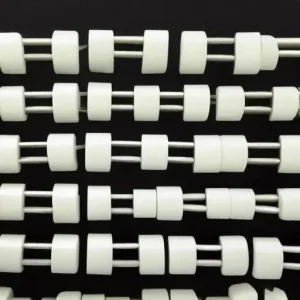How Long Does a Mortgage Pre-Approval Last?
Unlock your home-buying power with a mortgage pre-approval! Learn how long your pre-approval is valid and avoid costly delays. Get the inside scoop on securing your dream home.
Securing a pre-approval for a mortgage is a crucial first step in the home-buying process․ It provides you with a clear understanding of your borrowing power and strengthens your negotiating position when making offers on properties․ However, this pre-approval isn’t a permanent guarantee․ Its validity is time-limited, and understanding this timeframe is essential to avoid delays and potential complications․ Let’s delve into the specifics of how long a pre-approval typically lasts and the factors that can influence its lifespan․
Understanding the Pre-Approval Process
Before we explore the duration of a pre-approval, it’s beneficial to understand the process itself․ When you apply for a pre-approval, the lender reviews your financial information, including your credit score, income, debt, and assets․ They assess your ability to repay a mortgage loan and determine the maximum loan amount they’re willing to offer․ This isn’t a formal loan commitment; instead, it’s a conditional approval based on the information provided at that time․ The lender verifies the information you provide, running a credit check and verifying your employment and income․ This detailed review is vital in determining the pre-approval amount and terms․
Key Factors Considered During Pre-Approval
- Credit Score: A higher credit score generally leads to better interest rates and more favorable loan terms․
- Debt-to-Income Ratio (DTI): Lenders assess your DTI to determine your ability to manage monthly mortgage payments alongside other debts․
- Income Stability: Consistent employment history and stable income are crucial for demonstrating repayment capacity․
- Down Payment: A larger down payment often results in better loan terms and lower interest rates․
- Assets: Proof of sufficient liquid assets demonstrates your financial stability and capacity to handle unexpected expenses․
Typical Duration of a Pre-Approval
The duration of a pre-approval varies among lenders, but it typically ranges from 60 to 120 days․ Some lenders may offer a shorter timeframe of 30 to 90 days, while others might extend it to 180 days․ It’s crucial to clarify the validity period with your lender during the pre-approval process to avoid any surprises․ Always confirm the specific expiry date in writing․ This written confirmation serves as critical documentation when navigating the home-buying process․
Factors Influencing Pre-Approval Validity
Several factors can influence the validity of your pre-approval․ Significant changes in your financial circumstances could invalidate your pre-approval․ This is why maintaining financial stability during the home-buying process is crucial․ For instance, taking on new debt, experiencing a job loss, or a significant drop in income could all negatively impact your pre-approval․
Changes that Can Affect Your Pre-Approval
- New Debt: Opening new credit accounts or increasing existing debt can alter your DTI and affect your eligibility․
- Job Loss or Change in Income: A change in employment status or a significant reduction in income can render your pre-approval invalid․
- Credit Score Fluctuations: Any significant negative changes to your credit score can impact your eligibility for the pre-approved loan amount․
- Changes in Interest Rates: While less likely to invalidate the pre-approval itself, significant interest rate increases can affect the affordability of the loan and potentially change the offered terms․
- Failure to Provide Requested Documentation: Delays in providing necessary documentation can also lead to the expiration of the pre-approval․
Maintaining Your Pre-Approval
To maintain the validity of your pre-approval, it’s essential to keep your lender informed of any significant changes in your financial situation․ Proactive communication is key․ Regularly check your credit report for any inaccuracies․ Avoid making large purchases or taking on new debt during the home-buying process․ These steps will help you maintain your pre-approval and ensure a smoother transaction․
Extending Your Pre-Approval
If you anticipate needing more time to find a suitable property, you can often request an extension from your lender․ However, this isn’t always guaranteed, and the lender may require an updated financial review․ Reaching out to your lender well before your pre-approval expires is crucial․ Do not wait until the last minute; proactive communication is essential for a successful extension․
What Happens After Pre-Approval Expires?
Once your pre-approval expires, you’ll need to reapply for a new pre-approval or proceed directly to a full mortgage application․ Reapplying involves providing updated financial information and undergoing a new review process․ The lender will assess your current financial situation and determine your eligibility for a loan based on the updated information․ It’s important to be aware that your eligibility might change based on the time elapsed since the initial pre-approval․ This is why maintaining financial stability is so important throughout the home-buying process․
The Importance of a Pre-Approval
A pre-approval is a valuable tool in the home-buying process․ It provides a realistic budget, enables you to shop confidently, and strengthens your position when making offers; It helps you avoid wasting time on properties you can’t afford and ensures a smoother, more efficient home-buying experience․ However, remember that it is a temporary approval, subject to change based on your financial circumstances․ By understanding its limitations and proactively managing your finances, you can maximize the benefits of a pre-approval and navigate the home-buying journey with confidence․







